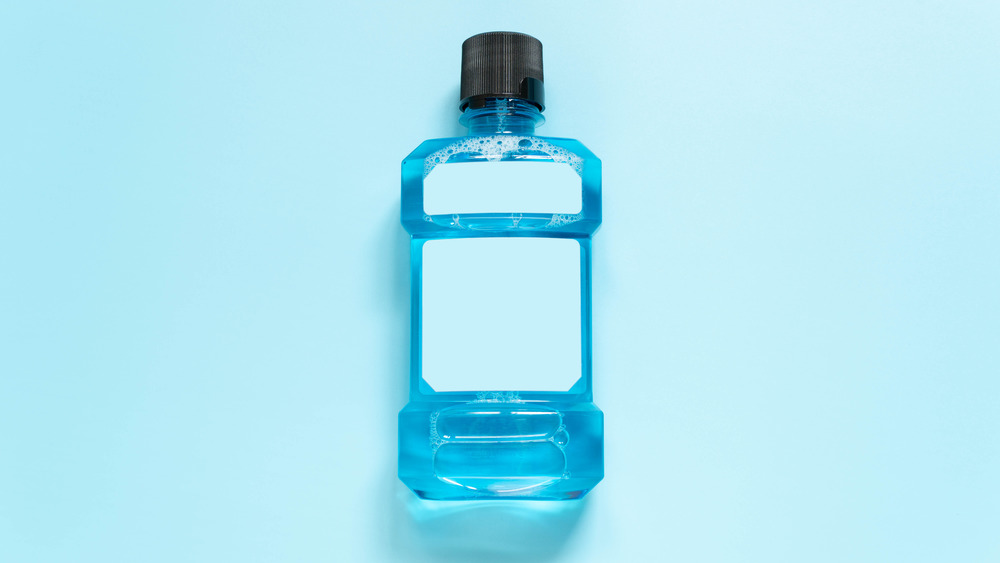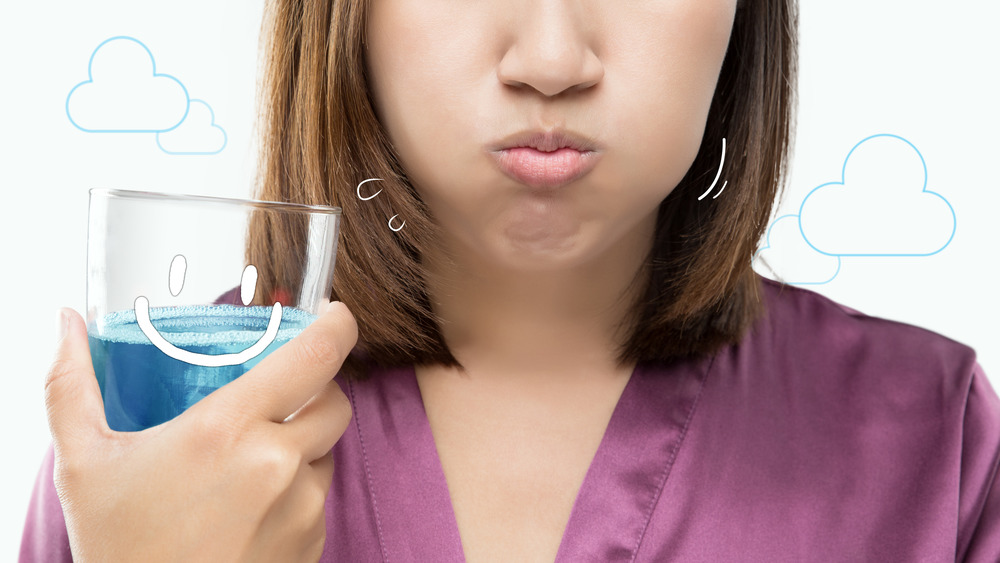Why Mouthwash Probably Won't Protect You From COVID-19
Heads up — not only are we dealing with a second (or third or... who knows, really) spike in the number of coronavirus cases, but we also appear to be headed for the next wave of wacky "cures" that don't really work. Next up on deck — but with a high probability of striking out — is the latest non-miracle non-cure: mouthwash.
Mouthwash as coronavirus cure? Sounds goofy, right off the bat. Well, Health explains that there is actually some hard science behind the allegations. Mouthwash does have the ability to damage the outer layer of certain other types of viruses, those that have a lipid membrane as does SARS-CoV-2 (which is the actual virus that causes the COVID-19 infection). In fact, researchers at Cardiff University in Wales found that three common mouthwashes they tested did have the ability to kill the coronavirus in just 30 seconds.
So does that mean we should all rush out to Walgreen's immediately and stock up on the stuff before it becomes scarcer than toilet paper last March? Not so fast. While these results are certainly interesting, unfortunately, they don't translate to any real-world application in which mouthwash saves us all from the pandemic.
Killing germs inside your mouth will neither prevent nor cure infection
The World Health Organization recently posted on its Facebook page the harsh truth: "Some brands of mouthwash can eliminate certain microbes for a few minutes in the saliva in your mouth. However, this does not mean they protect you from 2019-nCoV infection" (coronavirus or COVID to the rest of us). Not clear enough? They reiterate, "There is no evidence that using mouthwash will protect you from infection with the new coronavirus."
Medical professionals aren't overwhelmed by mouthwash's COVID-killing properties, either. Amesh A. Adalja, M.D., senior scholar at the Johns Hopkins Center for Health Security, told Health, "Mouthwash can kill lots of things," but this "doesn't translate into preventing infection." He explains that SARS-CoV-2 is "not a hearty virus," adding "many substances... can deactivate it."
Thomas Russo, M.D., professor and chief of infectious disease at the University at Buffalo in New York, weighs in with some further bubble-bursting, saying, "If you're already infected, that horse has left the barn" — meaning once you've been exposed to the COVID virus, most likely by inhaling it, it's already doing damage in your upper respiratory system and killing off a few germs inside your mouth may not do much good.
Still, using mouthwash can't hurt. There's still a small chance that it may help, on some level, to reduce the chance of infection — and even if it doesn't, at least it should help with that "mask breath."


